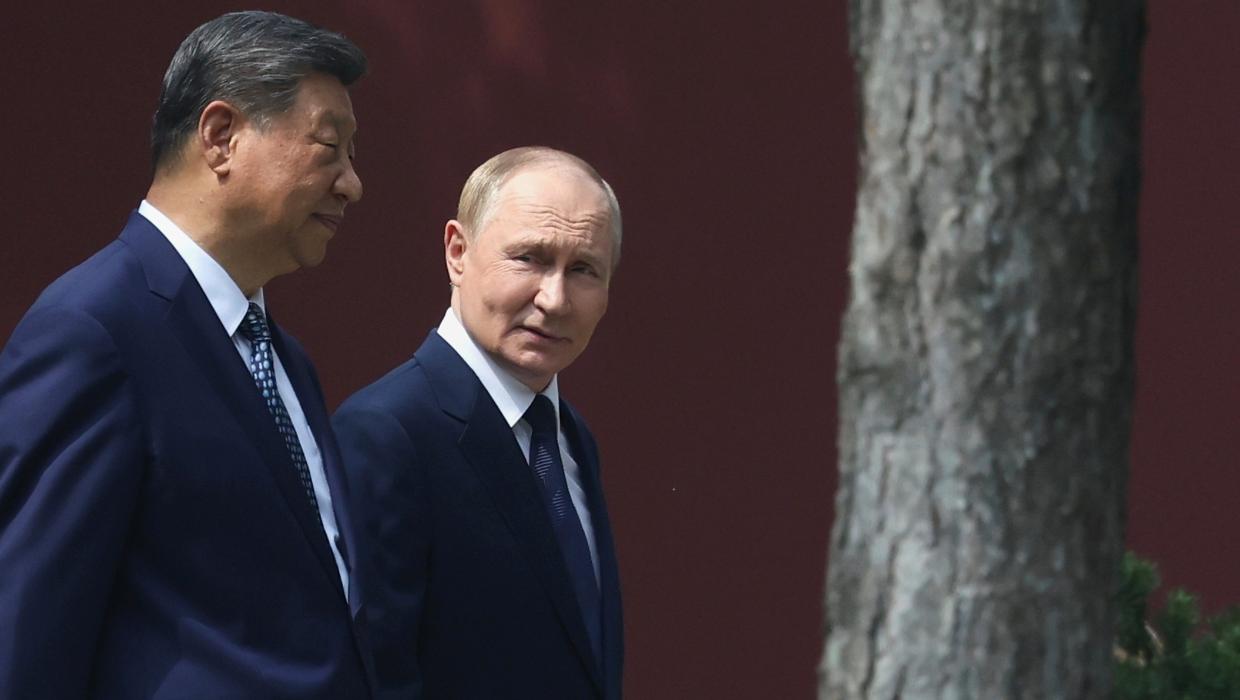Science
Putin’s Ambitions for Immortality: A Look into the Future

A recent incident involving a hot microphone has shed light on Russian President Vladimir Putin and his aspirations for extending human lifespan. During a private conversation, Putin hinted at a desire for immortality, raising questions about the implications of such ambitions in the realm of science and ethics.
The conversation occurred in October 2023 while Putin was attending a scientific forum in Sochi, Russia. As the world grapples with the challenges of aging populations, the potential for longevity research has garnered attention from leaders across the globe. Putin’s remarks underscore a significant intersection of politics, science, and ethics, particularly regarding who might benefit from advancements in this field.
Access to Resources and Scientific Expertise
Putin and a select group of global leaders have access to substantial resources, which could play a pivotal role in advancing longevity research. In countries like Russia and the United States, national funding agencies are increasingly investing in scientific initiatives aimed at understanding the aging process. Collaborations with leading researchers and biotechnologists could accelerate breakthroughs.
The potential for extending human life is not merely a theoretical concept. Current research in fields such as genetic editing and artificial intelligence is already yielding promising results. For example, advancements in CRISPR technology have opened new avenues for altering genetic material to combat age-related diseases. With state support, scientists could explore these avenues more comprehensively.
The Ethical Considerations of Longevity Research
While the prospect of extending life presents tantalizing possibilities, it also raises significant ethical questions. Who would have access to these life-extending technologies? Would they be available to all, or only to those with the means to afford them? The balance between scientific progress and social equity is a critical issue that policymakers must address.
The scientific community is divided on the implications of such research. Some experts argue that significant extensions of human life could exacerbate existing inequalities, while others believe that the benefits of enhanced health and lifespan should be available to everyone. A collaborative approach, integrating insights from multiple disciplines, may be necessary to navigate these complexities.
Putin’s remarks have ignited a broader conversation about the future of humanity and the potential for scientific advancements to transform our understanding of life and death. As nations compete for leadership in this emerging field, the implications of these pursuits extend far beyond individual ambitions.
The discussion surrounding longevity research is ongoing, and its outcomes will likely influence global health initiatives in the coming decades. As research continues to evolve, it remains to be seen how nations will address the ethical dilemmas that such advancements bring to the forefront of public discourse.
In the pursuit of longevity, the balance between ambition and responsibility will be crucial. The world watches closely as leaders like Putin navigate these uncharted waters, hoping to extend not just life but the quality of life for all.
-

 World4 months ago
World4 months agoTest Your Knowledge: Take the Herald’s Afternoon Quiz Today
-

 Sports4 months ago
Sports4 months agoPM Faces Backlash from Fans During Netball Trophy Ceremony
-

 Lifestyle4 months ago
Lifestyle4 months agoDunedin Designers Win Top Award at Hokonui Fashion Event
-

 Entertainment4 months ago
Entertainment4 months agoExperience the Excitement of ‘Chief of War’ in Oʻahu
-

 Sports4 months ago
Sports4 months agoLiam Lawson Launches New Era for Racing Bulls with Strong Start
-

 World5 months ago
World5 months agoCoalition Forms to Preserve Māori Wards in Hawke’s Bay
-

 Lifestyle4 months ago
Lifestyle4 months agoDisney Fan Reveals Dress Code Tips for Park Visitors
-

 Health4 months ago
Health4 months agoWalking Faster Offers Major Health Benefits for Older Adults
-

 Politics4 months ago
Politics4 months agoScots Rally with Humor and Music to Protest Trump’s Visit
-

 Top Stories5 months ago
Top Stories5 months agoUK and India Finalize Trade Deal to Boost Economic Ties
-

 Health2 months ago
Health2 months agoRadio Host Jay-Jay Feeney’s Partner Secures Visa to Stay in NZ
-

 World5 months ago
World5 months agoHuntly Begins Water Pipe Flushing to Resolve Brown Water Issue









